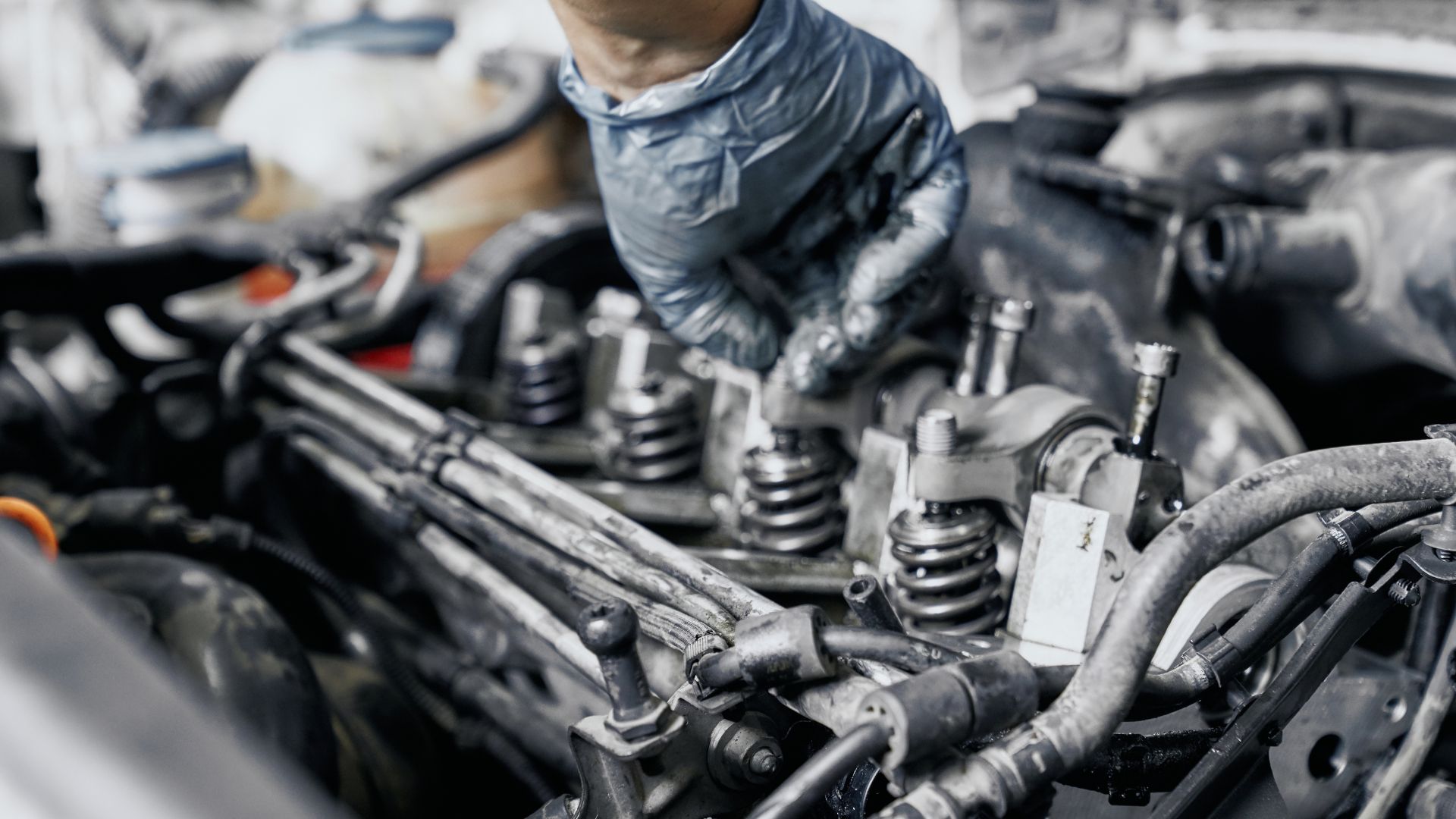
Picture this: you’re cruising down the highway, enjoying the open road, when suddenly your truck starts making a strange noise. Panic sets in as you realize you’re miles away from the nearest repair shop. But fear not! In our ultimate guide to mobile truck repair, we’ve got all the tips and tricks you need to stay prepared on the road. From essential tools to emergency contacts, we’ll help ensure that nothing stands in the way of your next adventure. So buckle up and get ready to hit the road with confidence!
Count on us for 24/7 assistance, top-notch repairs, and reliable service. Give us a call today here.
Essential tools and equipment for DIY truck repairs on the road
When it comes to DIY truck repairs on the road, having the right tools and equipment is essential. It can mean the difference between a simple fix and being stranded on the side of the road for hours waiting for help. In this section, we will outline the essential tools and equipment that every truck driver should have in their arsenal for mobile truck repair.
1. Basic Hand Tools: The most basic and important tool you will need is a set of hand tools. This includes a socket wrench set, screwdrivers (both flathead and Phillips), pliers, adjustable wrenches, and Allen keys. These tools can be used for a variety of repairs such as tightening loose bolts or replacing small parts.
2. Tire Repair Kit: Flat tires are one of the most common issues truck drivers face on the road. Having a tire repair kit can save you time and money by allowing you to patch up minor punctures yourself instead of having to wait for roadside assistance. The kit should include tire plugs, patches, glue, valve stems, and a tire pressure gauge.
3. Heavy-Duty Jack: Changing a tire or working underneath your truck requires lifting it off the ground safely with a heavy-duty jack. Make sure to invest in one that is suitable for your specific truck’s weight capacity.
4. Jumper Cables: Dead batteries happen unexpectedly but having jumper cables on hand can get your truck back up and running quickly without needing to call for assistance.
5. Fluids and Lubricants: It’s always wise to carry extra fluids such as oil, coolant/antifreeze, brake fluid, power steering fluid, transmission fluid, windshield washer fluid,and lubricants like WD-40 or grease in case of leaks or low levels while on the road.
You may also be interested in: The Ultimate Guide to Mobile Truck Repair: Everything You Need to Know
Tips for maintaining your truck and preventing breakdowns
Taking care of your truck is essential for any truck driver. It not only ensures your safety on the road but also helps you avoid unexpected breakdowns that can cause major delays and costly repairs. To help you maintain your truck and prevent breakdowns, we have compiled a list of tips that every truck driver should follow.
1. Regularly inspect your tires: One of the most common reasons for truck breakdowns is tire-related issues. Make sure to check the air pressure, tread depth, and overall condition of your tires before starting each trip. Replace worn-out tires immediately to avoid blowouts or accidents on the road.
2. Keep up with oil changes: Routine oil changes are crucial for keeping your engine running smoothly. Follow the recommended schedule by your manufacturer and use high-quality oil to ensure proper lubrication and prevent engine damage.
3. Check all fluids regularly: Apart from engine oil, it is important to check other fluids such as coolant, transmission fluid, brake fluid, and power steering fluid regularly. Low levels or dirty fluids can lead to major mechanical problems if left unchecked.
4. Pay attention to warning lights: Your dashboard warning lights are there for a reason – to alert you about potential problems with your truck’s systems. Do not ignore them; instead, take immediate action by consulting a mechanic or checking the issue yourself if possible.
5. Clean and maintain batteries: Properly functioning batteries are essential for starting your truck’s engine and powering all its electrical components while on the road. Keep them clean from corrosion buildup and replace old batteries before they fail unexpectedly.
Experience the peace of mind that comes with knowing Fast Service is just a phone call away. Chat with us here.
Emergency protocols for different types of truck issues
In the trucking industry, it’s not uncommon for unexpected issues to arise while on the road. From flat tires to engine failures, these situations can be stressful and potentially dangerous. That’s why it’s crucial for truck drivers to have a solid understanding of emergency protocols for different types of truck issues.
1. Flat Tire: A flat tire is one of the most common issues that occur while on the road. If you experience a flat tire, the first step is to safely pull over to the side of the road as soon as possible. Make sure to use your hazard lights and reflective triangles to alert other drivers.
2. Engine Failure: Engine failure can be caused by various factors such as low oil levels or mechanical malfunctions. If your engine suddenly stops working while driving, try your best to pull over safely onto the shoulder of the road.
3. Brake Issues: Brake issues are another serious problem that requires immediate attention from a professional technician. If you notice any unusual noises or difficulty in braking while driving, carefully slow down by using engine braking techniques (downshifting) instead of using your brakes.
You may also be interested in: Mobile Truck Mechanics: Keeping Your Fleet Rolling Anytime, Anywhere
How to create a Mobile Truck Repair Plan
As a truck driver, it’s important to always be prepared for any potential breakdowns or malfunctions that may occur while on the road. Having a solid mobile truck repair plan in place can save you time, money, and stress in case of emergencies. In this section, we will discuss the steps you need to take in order to create an effective mobile truck repair plan.
1. Know Your Truck: The first step in creating a mobile truck repair plan is knowing your vehicle inside out. This means understanding its specifications, maintenance schedule, and any common issues that may arise. Familiarize yourself with the different parts of your truck and their functions so you can easily identify potential problem areas.
2. Assemble an Emergency Kit: Having an emergency kit on board is crucial for any unforeseen repairs on the road. The kit should include basic tools such as screwdrivers, pliers, wrenches, and duct tape. It’s also important to have spare parts like fuses, light bulbs, and belts specific to your truck model.
3. Keep Up with Routine Maintenance: Regularly scheduled maintenance checks are essential for preventing major breakdowns while on the road. Make sure to follow manufacturer guidelines for oil changes, tire rotations, and other routine services. Keeping up with these maintenance tasks will not only keep your truck running smoothly but also help you catch small issues before they turn into bigger problems.
4. Have a List of Trusted Mechanics: In case of more complex repairs that require professional assistance, it’s important to have a list of trusted mechanics along your regular routes or at popular rest stops. Ask fellow drivers or check online reviews for reputable mechanics who specialize in commercial trucks.
Creating a mobile truck repair plan involves knowing your vehicle, being prepared with an emergency kit and maintenance schedule, having a list of trusted mechanics, and considering roadside assistance. By following these steps, you can ensure that you are well-prepared for any potential repairs while on the road.
When your truck’s in distress on the highway, don’t panic – call Fast Service for immediate, expert assistance!
To get more information about us, follow us on Facebook and Instagram. Or call us right now for a road service on: repairtrucktrailer.com




